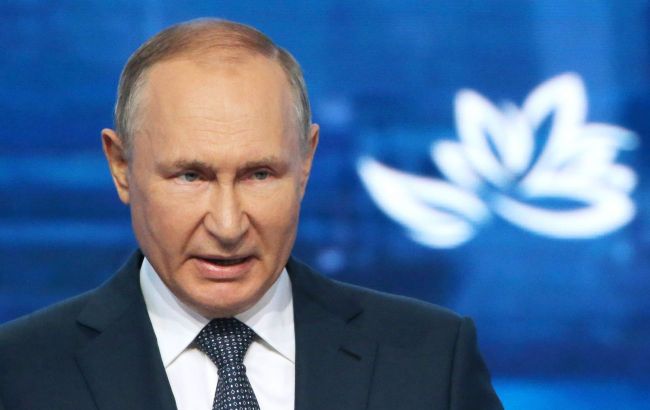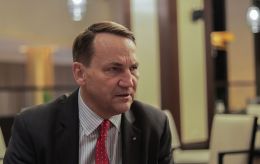Political analyst: Putin's threats with Oreshnik missile could backfire
 Photo: Russian president Vladimir Putin (Getty Images)
Photo: Russian president Vladimir Putin (Getty Images)
By threatening new strikes with the Oreshnik missile, Russian President Vladimir Putin may achieve the opposite of his intended result. His threats could bolster Ukraine's support from its partners, as political scientist and analyst from the Center for Scaling Technological Solutions, Maksym Nesvitailov, told RBC-Ukraine.
He pointed out that Russia's use of the Oreshnik missile nearly coincided in time with the West's approval for striking Russia with Western missiles. Neither the Oreshnik strike nor the rewriting of Russia's nuclear doctrine achieved the effect Putin desired, the expert believes.
"Putin continues to attempt these strategies but may achieve the opposite result," Nesvitailov said.
He explained that earlier, Russian missiles that entered Polish airspace were not intercepted. Russian Foreign Ministry spokesperson Maria Zakharova said that Poland's air defense base was on Russia's list of military targets. Such threats could shift Poland's and NATO's positions.
"Because they (Poles - ed.) received a direct threat. If they previously did not intercept missiles over their territory and did not consider shooting them down over Ukraine, now questions about their own security may arise," the political scientist explained.
He believes the best response from Poland and NATO would be to establish a 300-kilometer zone to intercept "accidental" hostile targets.
Nesvitailov adds that insiders suggest France is discussing with the UK the possibility of sending troops to Ukraine. This scenario appears quite realistic, according to the political scientist.
He also commented on the appointment of Keith Kellogg as the US Special Envoy for Ukraine. Even though Kellogg made statements about plans to halt and freeze hostilities along the front line, Nesvitailov emphasized that Kellogg also made several strong pro-Ukrainian declarations.
"He said that Ukraine's victory is strategically important for the United States and is in their direct interest. He also mentioned that Ukraine would not be abandoned and that a way must be found to end the war, but not on Russia's terms or to Moscow's benefit. And such a person Trump appointed as a special representative - a person deeply immersed in the context. It seems to me like the best response to Russia's threats, showing that these threats have no impact on the West's comprehensive strategy," the political scientist explained.
Putin's threats
On November 21, the Russians launched a missile strike on Dnipro. Ukraine’s Air Force reported that they used an intercontinental ballistic missile against Ukraine for the first time.
Russian leader Putin said that the Russian army conducted a test launch of the medium-range missile system Oreshnik. Ukraine’s Defense Intelligence clarified that Russia attacked Dnipro using the Kedr missile complex.
Later, Ukraine's Defense Intelligence chief Kyrylo Budanov explained that Oreshnik is the name of Russia's missile program, while Kedr refers to the missile system.
Putin threatened new strikes on Ukraine with Oreshnik missiles, claiming that "decision-making centers" could be targeted.


